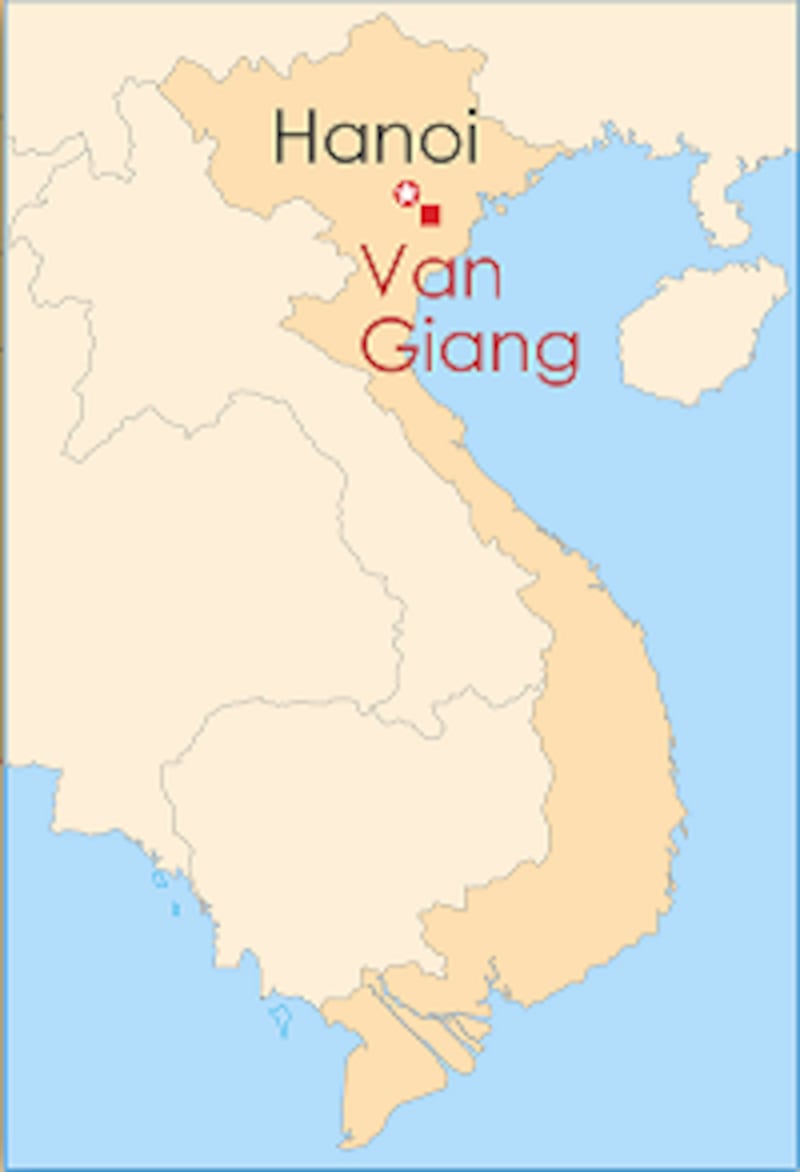More than 1,000 families reeling from one of Vietnam’s biggest land disputes say officials are ignoring their legal complaints over the loss of their rice fields confiscated for a satellite city on the edge of the country’s capital.
They were among residents in Hun Yen province’s Van Giang district whose protest against the takeover of their farmland in April last year was brutally suppressed by the authorities.
One year after the April 24, 2012 protests, the residents’ complaints against the seizure of the land to make way for the U.S. $8 billion dollar EcoPark development project have not yet been addressed, farmers’ representatives said.
Pham Hoanh Son, a villagers’ representative, told RFA’s Vietnamese Service the residents are “very disappointed” that officials had not responded to their complaints even though some had acknowledged in private that the farmers had been treated unfairly.
“We talked to various authorities who admitted in private talks that there had been wrongdoing but avoid saying so publicly,” he said.
“The government, from the province to the central level, is still ignoring us.”

Farmers had staged protests occasionally since the EcoPark project was launched several years ago, claiming that the government granted 500 hectares (1,200 acres) that they used as farmland to the developers without proper consultation or compensation.
In one of the biggest land clashes in the country in recent years, thousands of security forces suppressed the mass protest by the residents last year, with police firing warning shots and tear gas while farmers resisted by throwing bricks, glass bottles, stones, and Molotov cocktails.
Call to officials
On Wednesday, 1,244 Van Giang households issued a statement calling on Vietnam’s leaders to resolve the case and address concerns about their forced eviction.
“We have been determined and will continue to be, fighting till the end to protect our basic right, which is that farmers must have land,” the statement said, adding that that their case was being watched by farmers with similar disputes across the country.
“If you don’t pay attention and solve this case, which is very big and very close to Hanoi, people will understand that other cases of farmers in other provinces will never get the attention from the central government,” it said.
In Vietnam, all land belongs to the state, with people having only the right to use it, and expropriation has been linked to several high-profile incidents of unrest.
Court case refused
Land for the EcoPark project was confiscated in two stages in 2009 and 2012, but thousands of households refused to take compensation from the government, saying the amount offered was significantly lower than what they were owed.
Following the clash last year, residents submitted a complaint to the Van Giang People’s Court in May, suing the district chairman over their initial 2009 eviction.
In August, the court returned their complaint, saying it was refusing the case because there was not enough evidence.
The EcoPark project, part of a long-term urban planning scheme for Hanoi, was approved by the government for development by the Viet Hung Urban Development and Investment Company.
Hun Yen provincial officials recently issued a decision saying the province had already responded to complaints about the project and that the EcoPark development in the area was on track to proceed, Son said.
He said villagers had spoken with government officials who were sympathetic to their case and had indicated they believed that some agencies had “violated the law” in dealing with the land dispute, but were not willing to support the villagers due to the “sensitivity” of the case.
Son said he had been told that an official from the central government had been ordered to meet with the residents but refused to do so because he was “too busy.”
Earlier this month, a court in Haiphong sentenced a local official to jail for more than two years for his role in another of Vietnam’s highest-profile land disputes.
In a rare admission of a botched government land seizure, the official was sentenced for destroying the property of fish farmer Doan Van Vuong, who became a national hero after he was jailed for putting up an armed resistance to his forced eviction.
Four other officials received suspended sentences for their roles in the forced eviction in Hai Phong’s Tien Lang district.
Reported by RFA’s Vietnamese Service. Written in English by Rachel Vandenbrink.
